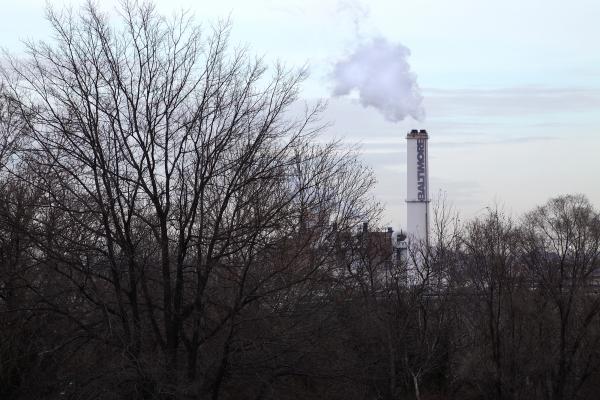This weekend, more than 80 faith communities in Maryland will lift up climate justice as part of the fourth annual “Climate in the Pulpits / on the Bimah / in the Minbar” event. Jointly organized by Interfaith Power & Light (DC.MD.NoVa) and the Chesapeake Climate Action Network, the event is a multi-faith effort to carry the message of creation care from the pews to policy makers.
“It's an opportunity to have space and resources and accountability to talk about climate justice from an ethical standpoint and from a religious standpoint,” said Avery Davis Lamb, director of faithful advocacy at Interfaith Power and Light (DC.MD.NoVa).
Over the past three years, organizers have seen impressive results from the initiative. One year, congregations were asked to speak out about the fracking ban. That same year, the fracking ban was passed in Maryland, due in large part to actions taken by the participating faith communities.
This year, congregants are being encouraged to contact their state legislators and voice their support for the Clean Energy Jobs campaign, a legislative proposal that calls for the state of Maryland to remove incentives for trash incineration, double the requirement for renewable energy sources, invest in clean energy jobs and workplaces, and, ultimately, lead the state of Maryland away from fossil fuels and towards the use of 100 percent clean energy.
At St. Luke’s Episcopal Church in Annapolis, Md., the policy isn’t just an environmental hot-topic, but a human rights issue.
“We have members with COPD (chronic obstructive pulmonary disease) who on a bad air quality day can't go outside because they're afraid they're going to have a bad asthma attack,” Rev. Diana Carroll said. “So there is that very immediate impact of that we know that the clean energy impacts our air quality and wanting to take those dramatic steps so that we don’t have so many poor air quality days that affect people’s health.”
While each congregation is invited to speak to the selected policy initiative, they are given autonomy as to how they present the information to their congregants. Through Interfaith Power & Light, congregations could request a guest speaker, download study guides, and get bulletin inserts to distribute during the service.
Joining the event for the first time, the Islamic Society of Frederick in Frederick, Md., will host a program for the kids of their community in hopes that they will take the message back to their families, encouraging them to become more conscious of climate change. With a congregation comprising mostly immigrants, Sister Aroosa Khan said she’s slowly been introducing members to recycling and energy saving.
“Coming to America, it's a different perspective and at first they don't realize that all this abundance is actually not as good as it seems.” Khan said. “It could be harmful.”
Islam puts a great emphasis on stewardship, Khan explained. Recently, the congregation has been helping plant 50 native trees with different congregations throughout the community. The mosque has also decided not to supply plastic forks and knives, choosing instead to bring in reusable plates and glasses.
“Our hope is that we can change the perspective,” Khan said. “That’s what leads to action and that’s what brings about change.”
As of Wednesday, 87 faith communities had signed up to participate in the event, with more being encouraged to join in throughout the month of October.
For Rev. Diana Carroll, this weekend is just one of many where she will lift up climate justice.
“I think this kind of collective action and pushing our decision makers and our legislators to adopt a new approach to these kinds of issue is really central to the practice of our faith,” Carroll said. “Because it does impact people's lives and Jesus called us to care for the least of these. And that extends, in my mind, to everyone from the neighbor living in an expensive house next door to those tiny microbes that are now eating up pollutants in our restoration system. We're called to care for all of life here on this planet.”
Got something to say about what you're reading? We value your feedback!





